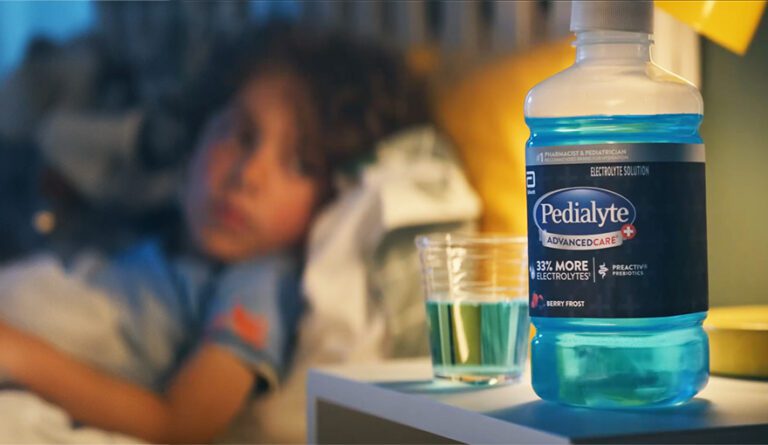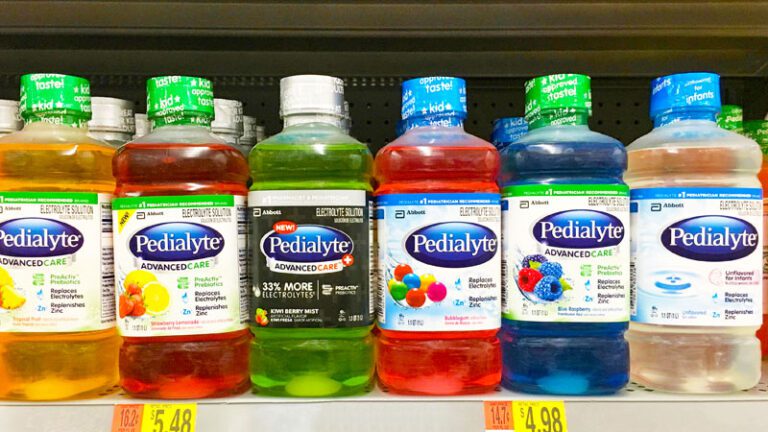Pedialyte is a go-to hydration solution for both children and adults, commonly used to prevent dehydration from illness, intense workouts, or hangovers. However, an important question many ask is: Does Pedialyte expire?
The short answer is yes—like any consumable product, Pedialyte has a limited shelf life. Whether you’re using abbott Pedialyte Advanced Care, Pedialyte Sport Powder, or unflavored Pedialyte, knowing when to discard it is essential for safety and effectiveness.
Let’s explore how long Pedialyte lasts, how to store it correctly, and when it’s time to throw it out.
What is Pedialyte and Why Is It Used?
Pedialyte is an oral rehydration solution designed to replace lost fluids and electrolytes. Unlike sports drinks that often contain high sugar levels, Pedialyte provides a balanced mix of sodium, potassium, and glucose to help the body retain hydration effectively.
Common Uses of Pedialyte
- Illness Recovery: Treats dehydration from vomiting and diarrhea.
- Workout Hydration: Used as a low-sugar alternative to sports drinks.
- Hangover Relief: Helps replenish lost electrolytes after alcohol consumption.
- Infant Care: Safe for babies, commonly recommended by pediatricians.
Regardless of how you use it, ensuring Pedialyte remains fresh and effective is essential.
Does Pedialyte Expire? Understanding Its Shelf Life
Pedialyte bottles and powder packets come with expiration dates printed on the packaging. These dates indicate how long the product remains safe and effective under proper storage conditions.


Unopened Pedialyte Shelf Life
- Bottled Pedialyte: Lasts up to 2 years from the manufacturing date if stored in a cool, dry place.
- Pedialyte Powder: Can last longer than liquid forms if kept in a sealed packet.
Opened Pedialyte Shelf Life
- Once opened, Pedialyte should be refrigerated and used within 48 hours.
- If left at room temperature for over 2 hours, bacteria may start to grow.
If you’re unsure whether your Pedialyte is still safe, check for signs of spoilage such as changes in color, smell, or texture.
How Long Can You Use Pedialyte After Expiration Date?
While unopened Pedialyte may still be safe to consume for a short period after expiration, its effectiveness decreases over time. The electrolytes and minerals may degrade, making the solution less efficient at hydrating the body.
General Guidelines:
- Unopened abbott Pedialyte: Safe up to 6–12 months past expiration, but with reduced potency.
- Opened Pedialyte: Do not use past 48 hours, even if stored in the refrigerator.
- Pedialyte Powder: If stored properly, can last months beyond expiration, but should be discarded if it has changed texture or clumped.
If you notice any changes in taste, smell, or consistency, it’s best to discard it.
Pedialyte Ingredients & How They Affect Expiration
Pedialyte’s shelf life is influenced by its ingredients, which include:
- Water – The primary base.
- Dextrose (Glucose) – Helps with electrolyte absorption.
- Electrolytes (Sodium & Potassium Chloride) – Essential for hydration balance.
- Citric Acid – A preservative that slightly extends shelf life.
- Natural Flavorings – These degrade over time, impacting taste.
Since liquid Pedialyte lacks strong preservatives, it is more perishable than some other electrolyte drinks.
How to Properly Store Pedialyte to Extend Shelf Life
- Keep It Cool: Store unopened Pedialyte in a cool, dry place away from direct sunlight. Extreme heat can degrade ingredients.
- Refrigerate After Opening: Always refrigerate liquid Pedialyte abbott once opened. Discard after 48 hours to prevent bacterial contamination.
- Avoid Cross-Contamination: Pour the solution into a cup instead of drinking directly from the bottle to prevent bacteria from entering the liquid.
- Seal Pedialyte Powder Properly: If using Pedialyte powder, ensure it’s stored in an airtight container after opening.
Does Freezing Pedialyte Affect Its Effectiveness?
Freezing Pedialyte into ice cubes or popsicles is a great way to extend its usability, especially for children who may not like drinking it straight.
Pros of Freezing Pedialyte:
- Maintains hydration benefits.
- Provides a refreshing way to consume electrolytes.
- Ideal for teething babies or sick individuals with sore throats.
Cons of Freezing Pedialyte:
- May cause separation of ingredients (shake well after thawing).
- Some flavors may taste different after thawing.
Freeze Pedialyte in small portions (ice cube trays or popsicle molds) for convenient single-use servings!
Does Pedialyte Need to Be Refrigerated?
Unopened Pedialyte does not require refrigeration. However, once opened, it must be refrigerated and used within 48 hours.
Never consume leftover Pedialyte that has been sitting out for more than 2 hours. Warm temperatures allow bacteria to grow rapidly.
Does Pedialyte Expire Faster in Hot Climates?
If you live in a hot and humid climate, Pedialyte may expire faster due to heat exposure. High temperatures can break down its electrolytes and preservatives, reducing its effectiveness.
How to Protect Pedialyte from Heat Damage:
- Store it in a cool, dark place away from direct sunlight.
- Keep powder packets sealed in airtight containers.
- Refrigerate liquid Pedialyte immediately after opening.
- Never leave Pedialyte in a hot car or near heat sources.
Signs That Your Abbott Pedialyte Has Gone Bad
If you’re unsure whether your Pedialyte is still safe to drink, look for the following warning signs:
- Cloudy appearance – Fresh Pedialyte should be clear or slightly colored.
- Odd smell – If it has a sour or unusual odor, discard it.
- Strange taste – Any off-taste may indicate bacterial growth.
- Clumping (Powder Form) – If the powder sticks together, moisture may have affected it.
If you notice any of these signs, it’s best to throw it out and open a fresh bottle.
Can You Use Expired Pedialyte in Emergencies?
In urgent situations, an unopened bottle of Pedialyte slightly past its expiration date may still be safe to drink if it looks and smells normal. However, it won’t be as effective at hydrating the body.
For babies, toddlers, or individuals with weakened immune systems, it’s always best to use fresh Pedialyte to avoid any risk of contamination.
How Does Pedialyte Abbott Compare to Homemade Electrolyte Solutions?
Some people prefer making homemade electrolyte drinks, but how do they compare to Pedialyte’s scientifically formulated blend?
Pedialyte vs. DIY Electrolyte Drinks
|
Factor
|
Pedialyte
|
Homemade Electrolytes
|
|
Electrolyte Balance
|
Clinically balanced
|
May be inconsistent
|
|
Sugar Content
|
Low
|
Often too high
|
|
Shelf Life
|
2 years (unopened)
|
1–2 days
|
|
Taste
|
Variety of flavors
|
May taste salty or bland
|
|
Effectiveness
|
Medical-grade rehydration
|
Varies by recipe
|
While homemade electrolyte drinks can work in a pinch, Pedialyte remains the best choice for fast and effective rehydration due to its precise electrolyte balance.
Is Pedialyte Safe for Everyday Use?
While Pedialyte is generally safe, it should not replace daily water intake. Regular consumption without medical need can lead to:
- Excess sodium intake, which may cause high blood pressure.
- Increased sugar intake, which isn’t ideal for diabetics.
- Digestive discomfort, if overused.
When Is It Safe to Drink Pedialyte Daily?
- If prescribed by a doctor for chronic dehydration.
- For athletes needing electrolyte replenishment.
- If recovering from illness, heat exhaustion, or extreme workouts.
For daily hydration, plain water is still the best choice!
Can Pregnant Women Drink Pedialyte?
Yes! Pedialyte is safe for pregnancy and can be helpful in cases of morning sickness, dehydration, or heat exhaustion.


- Benefits for Pregnant Women:
- Replaces lost electrolytes due to vomiting.
- Helps combat fatigue and dizziness.
- Keeps hydration levels balanced.
How to Use Safely:
- Opt for unflavored or lightly flavored varieties.
- Stick to recommended serving sizes.
- Avoid if you have medical conditions requiring sodium restriction.
Can Pets Drink Pedialyte?
Yes, Pedialyte is sometimes used for dehydrated pets like dogs and cats—but only under veterinary guidance.
How to Give Pedialyte to Pets:
- Mix with water (1:1 ratio).
- Use unflavored Pedialyte (no artificial sweeteners).
- Offer in small amounts using a syringe if necessary.
When to Avoid Pedialyte for Pets:
- If your pet has kidney disease or diabetes.
- If they are vomiting excessively.
- If they refuse to drink water for more than 24 hours (seek vet care!).
Always consult a vet before giving Pedialyte to your pet!
FAQs
Is it safe to drink an IV fluid that is expired but still sealed?
No, expired IV fluids can lose sterility and potency, increasing the risk of infection or reduced effectiveness. Always use fresh, unexpired IV fluids for safety.
Does Pedialyte not keep working after 48 hours?
After 48 hours, opened Pedialyte may develop bacterial contamination and lose its electrolyte stability, making it unsafe to drink. It’s best to discard it and use a fresh bottle.
How much Pedialyte can an adult drink in one day?
Adults can safely consume 1–2 liters per day, depending on dehydration severity, but excessive intake may disrupt electrolyte balance. Consult a doctor for prolonged use.
What’s in Pedialyte that makes it go bad after only 48 hours?
Pedialyte lacks strong preservatives, and its water-based formula makes it prone to bacterial growth after opening, reducing its safety and effectiveness.
What should I do if my cat has vomiting and diarrhea?
Offer small amounts of unflavored Pedialyte mixed with water and monitor hydration, but if symptoms persist for over 24 hours, seek veterinary care immediately.
Does Carbohydrates in Pedialyte Affect Its Expiration?
No, the carbohydrates in Pedialyte, primarily dextrose (glucose), do not directly impact its expiration. However, once opened, the sugars can encourage bacterial growth, which is why Pedialyte must be used within 48 hours to ensure safety and effectiveness.
Final Thoughts
Yes, Pedialyte does expire, and proper storage is crucial to maintain its effectiveness. Always check expiration dates and discard Pedialyte that is past its prime, smells off, or has changed color.
For maximum safety, use Pedialyte within 48 hours after opening, and never consume it if it has been left out for over 2 hours.
Read more:
Baby Hates Vitamin D Drops (What Happens If She Won’t Take Them?)











